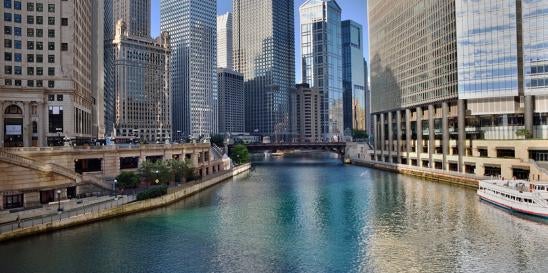On December 14, 2023, the Cook County Board of Commissioners (“the Board”) overhauled the 2017 Cook County Earned Sick Leave Ordinance, replacing it with the Cook County Paid Leave Ordinance (CCPLO or “the Ordinance”). The changes are a major shift from the previous ordinance which allowed employees working for an employer in Cook County to earn and use up to 40 hours of paid sick leave per year and outlined conditions under which that leave could be used (e.g., when the employee or their family member was ill, receiving medical care, etc.).
Now, effective December 31, 2023, employees working for an employer in Cook County will be entitled earn and use up to 40 hours of paid leave per year. The CCPLO brings Cook County in line with the Illinois Paid Leave for All Workers Act (“the PLAW Act”), as it has substantially identical provisions.
Under the Ordinance, Cook County employers will be subject to the same requirements as employers falling under the PLAW Act.
- Accrual
- Employees must be allowed to accrue paid leave at a rate of one hour for every 40 hours worked;
- Employees must be allowed to use paid leave for any reason of the employee’s choosing;
- Salaried, overtime-exempt employees are deemed to work 40 hours a week for accrual purposes, unless their regular workweek is under 40 hours, in which case paid leave accrues based on that regular workweek;
- Hourly, non-exempt employees accrued paid leave based on hours; and
- Employers may, but are not required to, allow more than 40 hours of paid leave to accrue per year.
- Use
- Employees must be allowed to use accrued paid leave 90 days after the CCPLO takes effect, or after 90 days following commencement of employment, whichever comes later;
- Employers may not require employees to provide a reason for the leave or provide documentation or certification as proof in support of the leave;
- Employers may set a reasonable minimum increment for the use of paid leave not to exceed two hours per day, and if the employee’s scheduled workday is less than two hours per day, the employee’s scheduled workday is used to determine the amount of paid leave; and
- Employers may not require employees to search for or find a replacement worker to cover the hours during which the employee takes paid leave.
- Carryover versus Frontloading
- Unless employers frontload all 40 hours at the start of the benefit year or on the employee’s first day at work, up to 40 hours of unused, accrued paid leave must be permitted to carry over to the following benefit year.
- If employers frontload, they are exempt from the carryover requirements and may require employees to use all paid leave before the end of the benefit year or forfeit the unused paid leave. However, frontloading employers must reload employees’ paid leave bank with the full 40 hours required under CCPLO at the start of the next benefit year.
- Notification
- Employers must post a notice in a conspicuous place advising employees of their rights to paid leave under the Ordinance (the Cook County Commission on Human Rights (the “Commission”) will provide a form notice that satisfies this requirement);
- Employers may establish reasonable paid leave policy notification requirements which may include:
- Requiring employees to provide seven days’ notice before the date the leave is to begin, if the need to use paid leave is foreseeable; and
- Requiring employees to give notice “as soon as is practicable” after becoming aware of the need to use paid leave, if the need to use paid leave is not foreseeable.
- If employers change their paid leave policy notification requirements above, they must provide employees with written notice of those requirements within five calendar days of the change, along with the notice advising employees of their rights to paid leave under the CCPLO.
- Recordkeeping Requirements
- Employers must make and preserve records documenting the following:
- Hours worked by employees;
- Paid leave accrued and taken; and
- The remaining paid leave balance for each employee for a period of not less than three years.
- Employers providing paid leave on an accrual basis must provide notice of the amount of paid leave accrued or used by employees upon an employee’s request.
- Employers must make and preserve records documenting the following:
Finally, an employer with an existing paid leave policy may comply with the CCPLO if it meets or exceeds the Ordinance’s requirements and provides that paid leave may be used for any reason.
Notable distinctions between the PLAW Act and the CCPLO include the following:
- Unlike the PLAW Act, the CCPLO allows employees to file civil suits against employers who violate the Ordinance in addition to letting employees file complaints with Commission. The PLAW Act does not create a private right of action for employees but does allow them to file complaints with the Illinois Department of Labor.
- While both the PLAW Act and CCPLO permit employees covered under a bona fide collective bargaining agreement (“CBA”) to waive their respective requirements and exempt employees in the construction industry covered by a CBA, the CCPLO does not carve out employees covered by CBAs working in the parcel delivery industry, while the PLAW Act specifically exempts those employees.
The CCPLO will be enforced starting on February 1, 2024. Updated notices, FAQs, and the complaint form can be accessed through the Commission’s website as more information becomes available, so be sure to check back before January 1, 2024. As a reminder, the PLAW Act specifically exempts employers covered under a municipal ordinance that requires employers to provide employees with paid leave or paid sick leave. Thus, employers in Cook County will be subject to the CCPLO, not the PLAW Act.




 i
i


